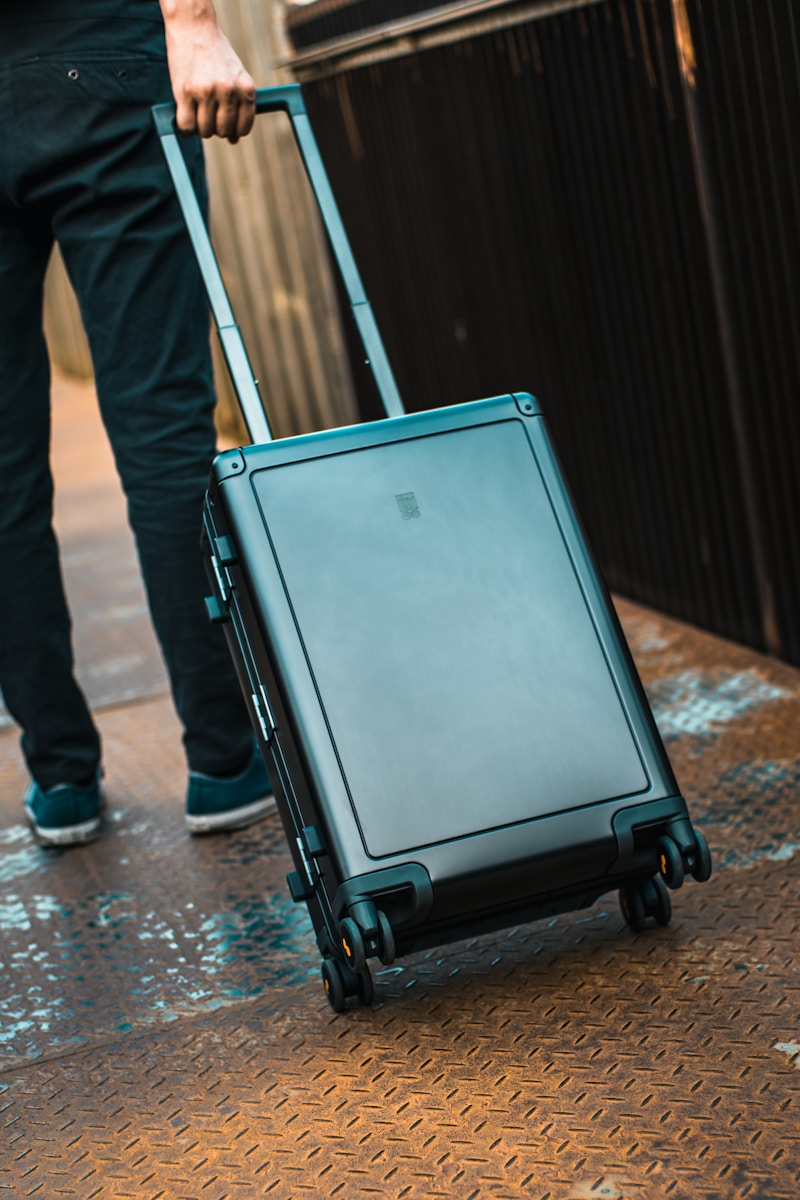We’ve all been there – you think you’ve found the perfect budget flight to Barcelona or Rome, only to discover at checkout that your carry-on bag will cost more than your actual seat.

That frustrating experience might soon become a thing of the past.
What Just Happened in Brussels
On June 24, 2025, European Union lawmakers voted to ban airlines from charging passengers extra fees for hand luggage on flights within, to, or from Europe.

This isn’t just a small tweak – it’s a complete game-changer for how we travel.
The proposal allows passengers to bring two items onboard at no extra cost:
- A personal item (like a handbag or small backpack) measuring up to 40x30x15 centimeters
- A carry-on bag weighing up to 7 kilograms with maximum dimensions of 100 centimeters total
That’s 15.4 pounds of luggage you can take without paying a penny extra – on top of your personal item.
The Money Behind the Madness
To understand why this matters so much, you need to know how much airlines have been making from baggage fees. Ryanair alone made €4.7 billion last year from charging extra fees like seat selection and baggage costs.
But here’s the deal – these fees haven’t just been annoying passengers. They’ve been hitting families particularly hard. Imagine a family of four trying to pack for a week-long vacation, only to discover they’ll pay hundreds of euros just to bring their clothes.
“Today’s vote marks an important step toward fairer and more transparent travel,” said Matteo Ricci, vice-president of the EU Committee on Transport and Tourism. “Parliament is taking a strong position that defends citizens’ rights.”
The Spanish Catalyst
This didn’t happen overnight. Spain fired the first shot in this battle when its Consumer Rights Ministry levied fines totaling €179 million against five budget airlines in November 2024.

The airlines – including Ryanair, EasyJet, and Vueling – were penalized for what Spain called “abusive practices.”
That’s why European lawmakers decided enough was enough. Consumer rights groups had been pushing for years, and travelers were getting increasingly frustrated with surprise fees.
What Airlines Are Saying
Airlines aren’t happy about this, and they’re not staying quiet. Industry groups warn that this could mean higher ticket prices across the board. Their argument? If they can’t charge for luggage, they’ll have to make up the revenue somewhere else.

The Airlines for Europe trade group complained that the vote “removes choice from passengers and their ability to decide what services they want to pay for.”
But here’s the catch – many full-service airlines like Air France, Lufthansa, and KLM already include hand luggage in most of their fares. It’s primarily the low-cost carriers that have been charging these fees.
The Current Luggage Lottery
Right now, flying with budget airlines feels like playing a complicated game where the rules change depending on which airline you choose. EasyJet allows one small bag under the seat. Ryanair has different size requirements. Wizz Air has its own standards.
You’re better off being a luggage expert just to avoid surprise fees. Many travelers have stories of being caught off guard when switching between airlines, discovering their perfectly reasonable bag suddenly doesn’t meet the new carrier’s requirements.
Beyond Baggage: Other Passenger Wins
This baggage reform is just part of a broader passenger rights overhaul. Other proposed changes include:
- Children under 12 can sit with their accompanying passenger free of charge
- Free seats for carers of people with reduced mobility
- Airlines must disclose full flight costs upfront
- Improved compensation for flight delays
These measures address some of the most common frustrations travelers face when booking flights in Europe.
The Reality Check
Now, before you start packing that extra pair of shoes, there’s an important caveat. This isn’t law yet. The European Parliament’s transport committee voted in favor, but the proposal still needs several more approvals.
The proposal must get backing from 55% of EU member nations, and there will be negotiations between the European Parliament, European Commission, and Council of the EU. Only after these “interinstitutional negotiations” conclude can the changes become law.
EU governments mostly oppose the change, preferring that passengers should only be allowed to take “personal items essential for the duration of the journey” free of charge – things like travel documents, medicines, and appropriate food and beverages.
What This Means for Your Next Trip
If this becomes law, it would apply to all flights within the EU and those traveling to or from EU destinations. That means whether you’re flying from London to Paris, New York to Madrid, or taking a connecting flight through Amsterdam, these rules would apply.
The 100-centimeter rule is actually slightly smaller than current maximum cabin bag dimensions allowed by most airlines, so there might be some adjustment needed. But the weight allowance of 7 kilograms is quite generous for most travelers.
Industry Pushback and Future Prices
Airlines argue that if they can’t charge for luggage, they’ll simply increase base ticket prices. This could mean travelers who prefer to pack light might end up paying more than they would today.
But here’s what they’re not telling you – many travelers already pay these fees anyway, so the total cost might not change much. What would change is transparency and predictability in pricing.
Some industry watchers believe airlines might find other ways to generate revenue, possibly through premium seat selection, priority boarding, or enhanced meal options.
The Standardization Game
One positive development is already happening. Airlines for Europe announced that 17 major European airlines have begun implementing standardized dimensions of 40x30x15 centimeters for under-seat bags.
This standardization alone would eliminate much of the confusion travelers currently face when switching between different airlines.
Looking Ahead
Negotiations are expected to begin in July 2025, with the earliest implementation likely sometime in 2026 if all goes smoothly. That might seem like a long wait, but considering how long passengers have been dealing with confusing baggage fees, it’s moving relatively quickly.
The success of this proposal could also influence other regions. If the EU successfully implements free hand luggage rules, other aviation markets might follow suit.
For now, travelers should continue checking baggage policies carefully when booking flights. But there’s genuine reason for optimism that the era of surprise luggage fees might finally be coming to an end.
The message from Brussels is clear – European lawmakers believe that bringing a reasonable amount of hand luggage should be a basic right, not an expensive add-on. Whether that becomes reality will depend on the complex negotiations ahead, but passengers have never had a stronger voice in this fight.
